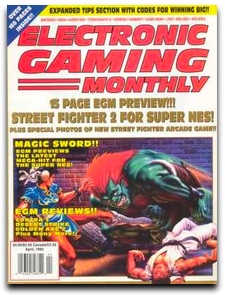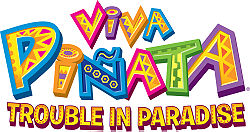 Entertainment Software Association (ESA) president Michael Gallagher called this the “Golden Age of Gaming” during his E3 keynote address. Calling out innovators like Nintendo who have “helped revolutionize our industry” and Sony’s Home initiative.
Entertainment Software Association (ESA) president Michael Gallagher called this the “Golden Age of Gaming” during his E3 keynote address. Calling out innovators like Nintendo who have “helped revolutionize our industry” and Sony’s Home initiative.
The keynote fell on the ears of fifty or so people who filled the large room awaiting his talk. Gallagher believes we’re in some of the best years of the gaming industries life based on… sales figures, technology and innovation?
If we’re in the Golden Age of Gaming we might as well pack it in now. Text book definitions of the phrase are defined as “the first and best of the four ages of humankind; an era of peace and innocence that finally yielded to the silver age.” Or, “the most flourishing period in the history of a nation, literature, etc.” (dictionary.com)
By that definition, we’ve seen the best to come and everything from here is downhill. When a person retires from work they’re often said to have reach the “golden age” of their career. Is this the correct message to be sending to the industry? That we’ve done it all and now it’s time to sit and relax.
In terms or progress it seems we’ve only just begun to realize the potential of the growing industry. We’ve learned there is a place for intense graphical games and fully interactive motion-sensitive product lines and accessories. We’ve broken the mold on game controller designs with the Wii controller, Wii Fit, Rock Band, Guitar Hero and keypad controllers like the 360 attachment.
Nothing has been perfect or “at peace” in the industry. Nintendo is releasing the Wii Motion Plus accessory to increase their sensitivity in their games and, overall, fix the limitations of their Wii controller. Sony continues to work on scaling and global presence in Home while Microsoft continues to update their Xbox Live solution with new creative community features, not mention the failure rate on the 360.
The console realm is far from perfect and the PC gaming realm is an ever growing technological race of bleeding edge graphic cards and powerhouse processors. PC’s and consoles shrink their technology, conserve power with new advances and are still learning how to handle multi-core designs. How is this the golden age of gaming when we’ve not yet found our true potential?
Sony has said they’re working on a 10-year game plan and you can only “imagine” what the PS3’s going to have for gaming titles in two or three years. They’re jazzed for the upcoming 2009 and beyond; if this was truly the golden age of gaming we’d all be sitting back sucking on grapes handed to us on golden platters by servants.
For Gallagher to even suggest we’ve hit our full potential shows he’s not looking at the big picture. Perhaps he meant E3 has hit its golden age?

 Granted, there were other glossy magazines prized by young boys too, but we were old enough to purchase Electronic Gaming Monthly, now known as EGM by the hip and cool. Although EGM was founded in 1989, many adults between the age of 29 and 35 probably spent their youth flipping through the pages reading the reviews and editorials.
Granted, there were other glossy magazines prized by young boys too, but we were old enough to purchase Electronic Gaming Monthly, now known as EGM by the hip and cool. Although EGM was founded in 1989, many adults between the age of 29 and 35 probably spent their youth flipping through the pages reading the reviews and editorials. Once upon a time Rare though they had a winner; a game which would end all the confusion between a hardcore console and a kiddie console. Viva Piñata was supposed to change the way we think about Xbox 360 gaming by showing off a title that would make children feel more inclined to game on a “big boys console.”
Once upon a time Rare though they had a winner; a game which would end all the confusion between a hardcore console and a kiddie console. Viva Piñata was supposed to change the way we think about Xbox 360 gaming by showing off a title that would make children feel more inclined to game on a “big boys console.”